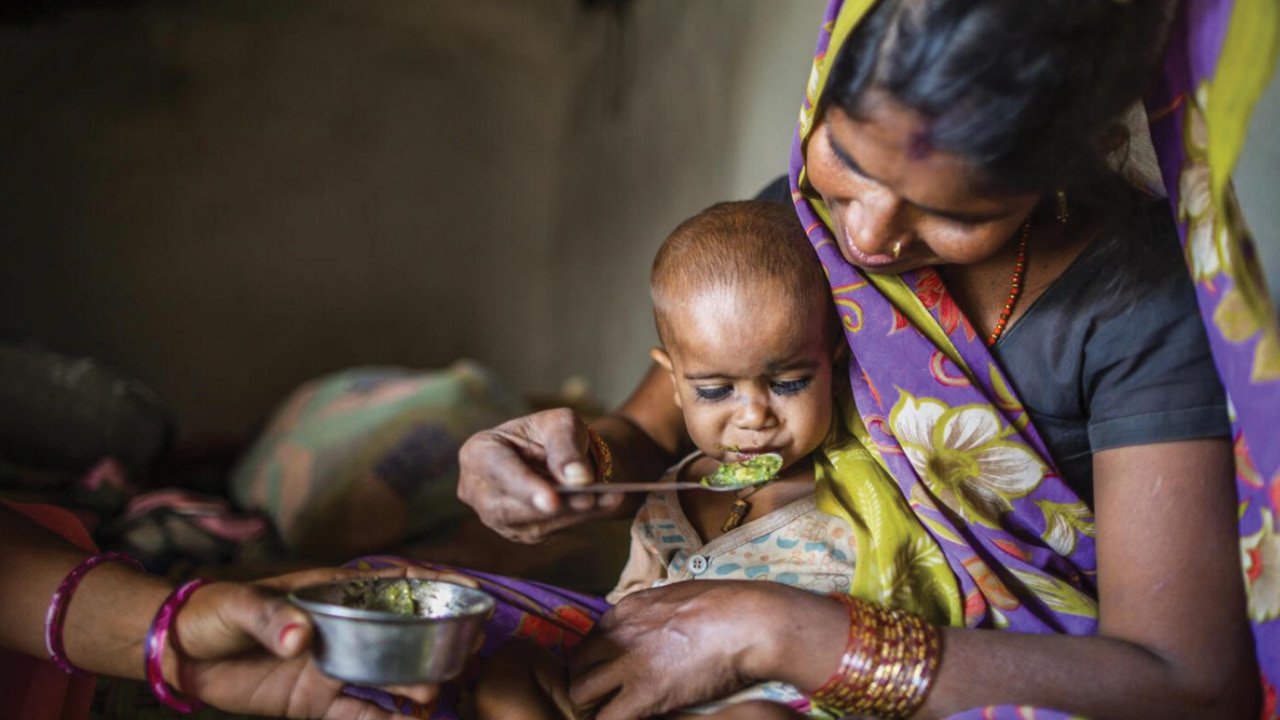Swasthyakarmi Yojana: Maternal, Infant and Child Nutrition – Tribal Area Development Department & SWACH Project Udaipur

Total of 14,773 pregnant women were counselled at home using flip books and IEC materials.
Problem
- Poor health and nutritional status of pregnant and lactating women in tribal areas
- Lack of education about maternal health and nutritional well-being
- Recurring malnutrition in future generations compounding the problem several folds
- No provision for regular health check ups or complimentary food to beneficiaries
Solution
- Initiation of village drive in collaboration with UNICEF to spread awareness.
- Capacity building of village frontline workers
- Deployment of Swasthya Karmis for assistance and counselling purposes
- Development of 1,000-Days window opportunity to nourish both mother and infant
- Promotion of hygiene and safe drinking water awareness among tribal women
Outcomes
- A total of 14,773 pregnant women were counselled at home using flip books and IEC materials on health and nutrition
- A total of 4,652 births were registered under MIYCN out of which 4,174 were institutional deliveries
- ANC visits were completed by 1,279 pregnant women
- 3,920 women were recorded as having breastfed their child for the first 6-months
Project Details
Category: Health
Project: Maternal Infant and Young Child Nutrition & Swasthyakarmi Yojana
Organisation: Tribal Area development Department & SWACH Project Udaipur
Start Date: 01-Jan-2015
https://tad.rajasthan.gov.in
Problem
The health and nutrition status of the tribal women in these areas is very vulnerable. Their social condition, economic status, social norms and practices make them downcast. The tribal community has many underlying challenges and causes like poverty, lack of education, language and their culture and taboo. In the tribal areas, the health and ICDS departments are working for many years to achieve their objectives but the approach of these departments could not reach these tribal houses due to difficult terrain. The health of pregnant women and infants was a major issue in these areas. The knowledge about Antenatal checkups, immunisation, breastfeeding, handwashing practices and good feeding practices were not at optimum level in the tribal areas.
Solution
The project was started in collaboration with UNICEF to initiate a village level drive to spread awareness among tribal people. Capacity building training, MIYCN programme training, SBCC, books and records training, etc were given to district and village level frontline workers to fill the gaps. Swasthya Karmis were deployed who monitor women in their field areas. A database tool with the name 1,000 daycare register was developed that is filled by Swasthya-Karmi (SK), for counselling purposes. SWACH-TAD also used government-approved tools like EC materials, booklets, etc. Swasthya Karmi regularly contacted house to house and identified beneficiaries (pregnant women, lactating mothers and parents of children younger than 2-years) for providing them with the benefits of 1,000-Days window period opportunity. It is called the “Window of Opportunity ” or the 1,000-Days programme because it is targeted to take care of mother and infant for 270 days. which is the period of pregnancy+730 days – from birth to 2-years of age. The target beneficiary is from the 0-2 years cohort, a time of growth and development both physically and mentally for the child. After the identification, they were enrolled in the register and contacted as per guidelines at their home and counselled as per the guidelines. The regular health check-ups, weight check-ups of mother and child, complimentary food, balanced diet, necessary diet from time to time and nutrition counselling, promoting WASH – sanitation, hygiene and safe drinking water in the community are few of the key features of this programme.
Outcomes
In this programme a total of 1,427 Swasthya Karmi are working hence providing a livelihood to them. Total of 14,773 pregnant women were counselled at home using flip books and IEC materials on health and nutrition. Total 4,652 births were registered under MIYCN out of which 4,174 were institutional deliveries. The ANC visit was completed by 1,279 pregnant women. 3,920 women breastfeed their child up to the first 6-months. The drive helped in increasing the use of local foods, ICDS Take Home Ration (THR) at household level and growth monitoring of children at MIYCN day through the WHO growth chart.

